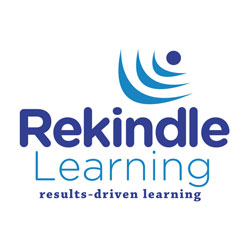In conversation with
Mrs. Rapelang Rabana
CEO | Rekindle Learning

FDI Spotlight: How are you enhancing education through technology and what has been the impact of your work?
Rapelang Rabana: There is a lot happening regarding technology and education. However, when you look at many governments online education programmes, including here in South Africa, they focus more on the infrastructure side of things as opposed to the curriculum structure or what the students are actually learning and doing on the devices.
The perception is that you can upload a textbook to an online platform, and that alone will dramatically change how students learn. There is minimal interrogation regarding the learning experience or the outcome.
One of the major motivations behind setting up Rekindle was to change that. You cannot simply duplicate what happens offline with students online. Therefore, one of the methodologies we apply is the concept of micro-learning reinforcement. We started by focusing a lot more on training young people on working in corporates and the financial services sector, such as helping them obtain any professional certification you would need if you were to start working in a bank. The material needed for this is typically delivered in a 300-page manual or a one day training course, which is often not ideal for students who come from a poor learning environment. This has significant consequences since the inability to get through the manual or course directly affects their ability to earn an income.
So, we repackage the material in micro learning steps that are question based. Learners then have the ability to study, answer questions, and get corrective feedback. Through that students then understand exactly where they went wrong or right and they understand the material itself better. The application tracks the progress of the learner, and continually brings them back to what they got wrong. Therefore they keep learning, until they demonstrate that they have a full understanding and full knowledge of what they are studying. It is a shift from time-based learning to competency of the subject and of learning itself.
Compared to most learning environments, especially within the corporate environment, students have to prove competency and not just that they ‘clocked the time’ without really learning anything. As an example, we had one financial institution who had a pass rate of 28% for an internal exam; after having the staff go through our system, the percentage of staffing passing the exam jumped to 89%.
It is a dramatic change, however if you think about it, it is really just changing from a system of relying on the diligence of people going through a 300-page manual to making them prove that they really understand the work. All the student has to do is engage and the platform takes care of the rest.
The content itself is never rocket science; it is literally just how learning is applied and learning is received that makes the difference. Since I do not come from a financial services background myself, I took one of our courses and passed a professional exam with 82%. That way I tested my own product for the client and simultaneously obtained another certification.
Companies themselves have now started to change the way they think about testing their people. They see now that it is not about a pass mark, it is about seeing that the staff member has actually put in the effort to learn. That is the only way to really see if real knowledge transfer has occurred.
What are you looking at in terms of the future for Rekindle in education and what you would like to achieve?
Rapelang Rabana: I have been looking at the education sector in general and which area would be sustainable. In 2016 I bought English Word Power, which is a programme that provides university students with a bridging course that will improve their English proficiency.
In South Africa we see the problem of people speaking English well, but failing the academic writing of English. The product has been around for some time now, but it had a narrow focus on Grammar, therefore we are relaunching it soon. We want to roll it out locally, as well as into Africa and the Middle East. We are also benchmarking it against international standards of writing English such as Cambridge to better cover reading, writing and listening skills.
I believe that a large part of addressing the #FeesMustFall movement is overcoming the language barrier. Just because you can speak English it does not mean you can learn in English at an English institution and many learners need support here.
The end game with micro-learning reinforcement is to take the workload of lecturers and to allow students to really understand a subject matter. They need to really know the foundation and understand the fundamentals and a computer can provide more personalized reinforcement than a human being.
How are you fostering international partnerships with accredited institutions in order to improve the quality of South African teachers, education and enhance your own platform?
Rapelang Rabana: While the corporate or financial services programmes we offer does not necessarily require partnering with international institutions, the English language product we have does require it, even if it is not an explicit partnership.
Therefore students take an assessment at the beginning and end of the course that is benchmarked against European standards. While we do not have an outright partnership with Cambridge, for example, for our own records we benchmark it against Pearsons, or international standards like the Common European Framework of Reference for Languages.
I go where the infrastructure is ready. So instead in of partnering with someone and getting more people online, especially for a small start-up, I prefer to show people what can be done with the internet. I think about it in the same way as highways are only built when you know there will be more cars driving.
How do you see technology and the internet empower more women?
Rapelang Rabana: I do not have hard data, but from simple interaction with users, I see that people are more comfortable learning online. It is a safer space, where girls especially can be more confident than in a classroom where you have to raise your hand or stand up.
I have found the impact on young learners quite interesting, and I think it really works in a context where women might not be allowed to express their ambition as much as they want to.
Mobile learning is a space where it is just you and your phone, so it takes away any form of cultural constraints. We also saw that women tend to try and find ways to fit it into their lives more often than men. For example, they get excited when they know that they can learn while watching their kids or travelling in a taxi.
How do you think mobile learning, and Rekindle, can make a positive impact on the current disconnect between education and industry?
Rapelang Rabana: I do not believe that Rekindle alone can solve this. Figuring out a working and impactful methodology for education is a beast on its own.
I think and know that there are others who can do it better. For example, one of the companies we are working with is working on a programme where they train and educate students based directly on what companies and industries want. For example, they will go to Eskom and find out exactly what their need is, what workers they want to hire in the future, and the training or syllabus will be based around that. Therefore, instead of the current system where students obtain a general electrician or welding degree, and then go look for a job, students will learn the exact skills they need to in order to go into a pre-specified job.
